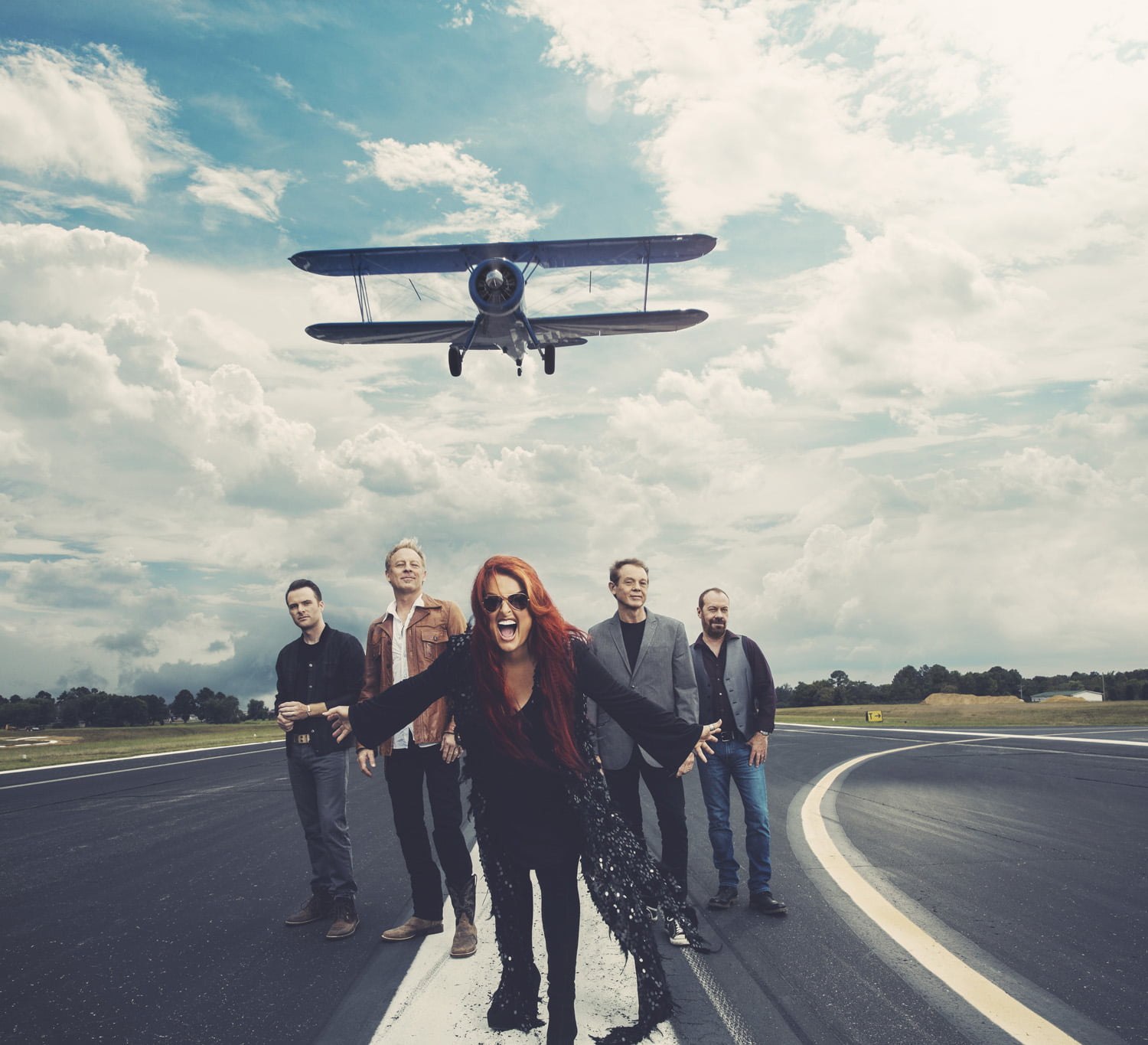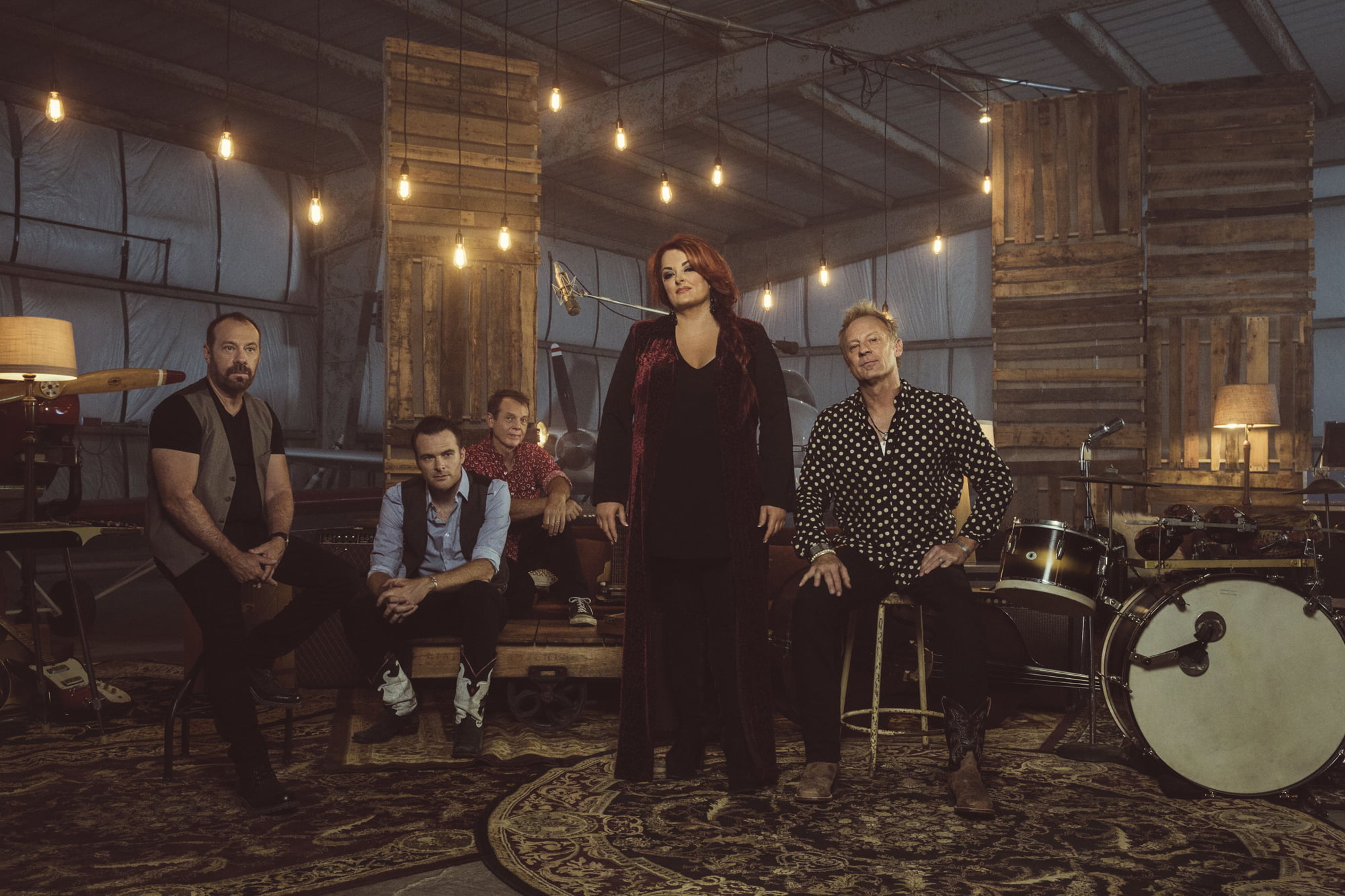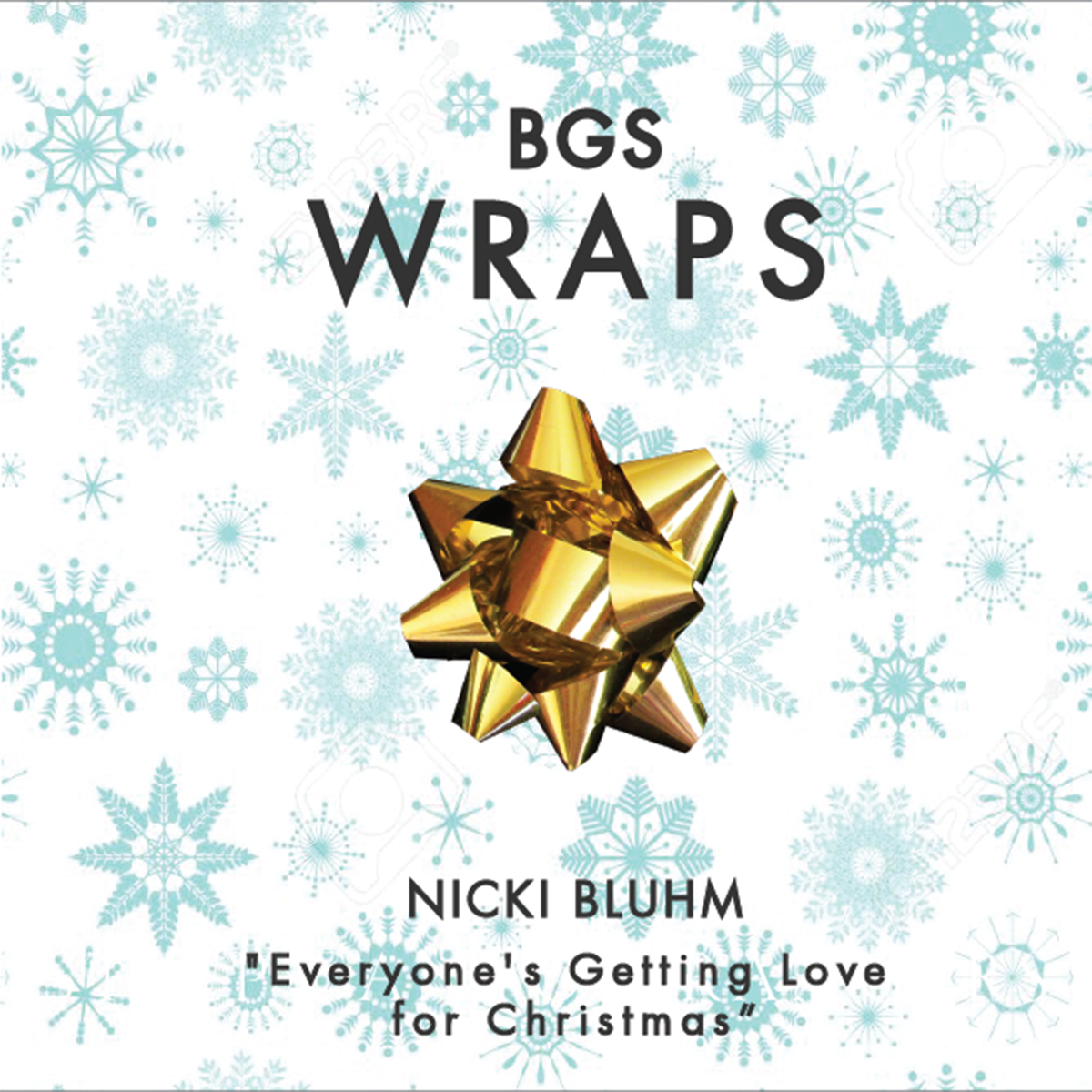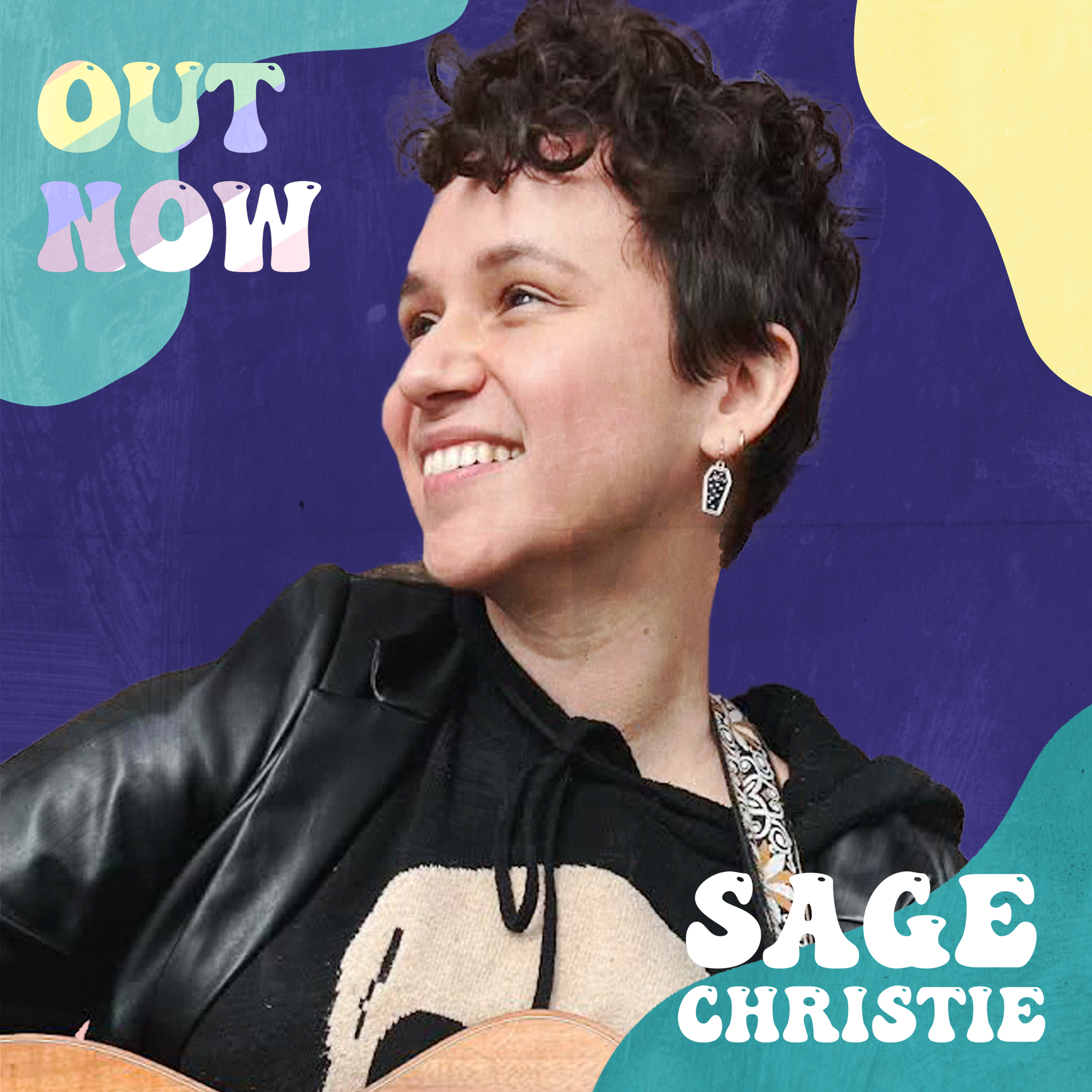To hear (or read) the name "Wynonna Judd" instantly elicits a reaction from pretty much everyone. And, rightfully so. For the past 30+ years, the country superstar with the big voice and brash style has topped charts and made headlines with every move she's made. But, forget what you know — or think you know — about Wynonna and consider the fact that her new record, Wynonna & the Big Noise, leans on songs by Chris Stapleton, Julie Miller, and Sarah Siskind, and offers up appearances by Jason Isbell, Susan Tedeschi, and Derek Trucks. Produced by her husband and band leader, Cactus Moser, the set finds Wynonna in, perhaps, the finest form of her career and the most peaceful place of her life.
I read a quote of yours, about you and your mom, that cracked me up. You said, “I knew the minute I was born that I was going to be the lead singer, and I knew by age 3 that I could sing. I just knew as a kid. I didn’t know exactly that she was going to follow me around.” Now that you've lost your shadow, what's the feeling? Freedom? Fear?
Wynonna Judd: One of my goals in this new year is “restoration.” I have a word every year. Restoration is taking the past and using it to propel me into the now which is, “How do I feel right now about being a part of this band?” It's exhilarating and terrifying. It's a lot of work. I'm spending more time as a musician than I ever have. Being an artist is like breathing. It's as easy to me as you writing. It's a part of me. Making this record, being on stage with my brothers … being not as much about being entertaining and funny and “Oh my gosh! She's a celebrity and a star!” It's about me getting back to my roots.
For instance, when Jason Isbell came out to the farm, we sat there and talked about everything from recovery to having children to being artists to how do we balance that. I'm really about making personal connections with people — standing in a dressing room with Bruce Springsteen and talking about what it's like to get older in this business and maintain your integrity. Going to see Susan Tedeschi and her husband, Derek Trucks, at the Ryman and talking about what it's like to be married and share the stage and share your life with a partner.
It's really an interesting time for me because, I'll be honest, I've been doing this for 35 years. Instead of looking at the word “reinvent,” the restoration part is what's really grooving me right now because I'm in a place of real change, both personally and professionally — whether it's going to the vinyl pressing where they're making our vinyl records and going, “Oh my gosh! I started out here and now here I am back 30 years later” … to using vintage instruments to make the record — 1930s drums, '40s microphones.
Cactus made a real smart move when he talked to me and said, “It's time for you to get back to your roots.” When you hear my voice on this record, it's very vulnerable, it's very raw, very real. It's a one-track take. There's no perfection — there's less of that than ever before, which is scary but exciting. It's like going bra-less. [Laughs] It feels really weird, but it's also very freeing because I can get out of the way of myself and the agenda I have and just interpret the songs, like an actor would a scene. I get to be … instead of Wynonna-isms all over the songs and having an agenda, I can just sit there and sing the song while the band plays. Dave Grohl was a huge help to me about how to be in a band, how to get out of my way, and just sing and enjoy myself. That was huge for me.
But you still have to be a band leader to a certain degree, no?
WJ: No, I don't, because Cactus is that. Cactus is the leader. I get to just show up and get away with singing. You know what's really great, sometimes? Letting go. Letting go of the idea of having to be in control. That really was a life saver.
After his accident, I became Mrs. Moser. And I finally let myself be a partner and not feel like I have to be this alpha-female and do it all myself and direct. I can just be a band member and enjoy myself and play my butt off and sing from my toenails. And I don't have to be the decision-maker. He was in the studio saying, “Okay, let's sing that with a different idea.” And I really trusted him. I let go, fell back, and let him catch me.
Cactus Moser: It's really hard, when you're an artist, to always see the spot you're standing on. To know where you need to go and to feel exactly everything is tricky. I looked at her many years ago … I was a fan from afar. I was in a group called Highway 101 and we opened for the Judds for a year. I used to go watch her sing at soundcheck and she would be playing with the melodies — playing around more than she did during the show. I was just floored by her gift and her voice and her talent.
Fast forward to when we got together to work, and I'm still looking at it like I'm a kid in a candy store. To have that amazing singer in a band is one of those rare things you get to do in life. So, when we were working together — both live and recording and writing these songs together — it was just a real dream. Sometimes it's cool to have somebody with you — I've always been in band situations, normally, and I produce a lot of stuff. I always believe in, “Let's work this out together.” She has great ideas, but I would sometimes go, “I hear it like this. Let's try it.” I think that's why there are so many great collaborations. You look at Mick [Jagger] and Keith [Richards] in the Rolling Stones or Glenn [Frey] and Don [Henley] in the Eagles or even the Police, when they were a full band … I think some of the most brilliant things come out of that pull and tug — when you try it from a different perspective. She's changed how I do things and vice versa. I think you get the best, more often than not, by that process.
You hear that on this record. You hear the balance between an edgier roots rock and a smoother contemporary country. Did that start with the songs and work out from there? Was that your process — songs first, sound second? Or did you know what you were going for, sonically, and reverse engineer it?
CM: Sonically, I wanted to make a record that sounds as interesting as it is musical. It's a little bit more of a soundtrack where the music speaks a little more. We used these very distinctive 1930s drums that I played on the whole record. The band all started to react to that instrument and it changed the feel and instrumentation that they played with. And Wy being live on the floor singing to us while we were tracking inspired, of course, everyone. Yeah, there was a sort of vision of the type of sound I wanted to go toward.
WJ: I wanted to have a revival. I don't know how old you are …

I'm old enough …
WJ: Well, you're old enough to know better, right? You know what you want. That's where I was: I know I don't want to be complacent. I don't want to make records like I did in the past where I got hooked on perfectionism, where I have to make this “vocal of the year award goes to …” [Laughs] I just wanted to enjoy myself and shake my butt and boogie. Some of these songs made me wiggle a lot. They made me do these dances while I was singing and he's filming me going, “I don't know if you see yourself doing this, but you're jiggling everywhere from head to toe.” [Laughs]
I just found myself enjoying myself so much that I kept forgetting, “Oh, I'm doing a vocal.” I was so into it, it was almost like I was on stage. I was having such a good performing moment that I enjoyed the process rather than going in and saying, “Oh, crap, I've gotta sing for four hours, get all the notes right, be perfectionism.” I didn't do that and it was so refreshing that it caught me off guard. When I would sing something and he'd go, “Oh my God, that was amazing!” I'd be like, “I have no idea what you're talking about. I was just having fun.” That's the key.
That's the magic, right there.
WJ: That's exactly what I wanted. When I walked away, I felt like I had no idea about the record and how it was going to sound. When I heard him come into the room and put on my headphones and play me Timothy B. [Schmit] singing his favorite Poco memories into this song, I just started to cry because I had no idea what was going to happen. To hear Susan sing on a song, I literally did the hallelujah dance because I couldn't believe it was happening. To get Jason to come out to the house, to sit there in our shed wearing a ball cap, doing this rap about life … one of my favorite things ever. It wasn't about the Grammys. It wasn't about, “Oh my God, this is two big artists making music history.” It was just two artists sitting there talking and having an experience together. That's my favorite.
It feels like you built a little bit of a community for yourself on this record with these folks. I know some of your earliest influences go back to bluegrass and mountain harmonies. So, do you feel like, even if that stuff isn't there musically, it's there in spirit with you these days?
WJ: Totally! And it transfers to the stage. I tell stories about everything from being 15, walking into the kitchen, and watching Stevie Ray Vaughn practice with his brother Jimmy. I've known Ricky Skaggs since I was 15 years old. He's like a relative. You're right: I did build a community with this record. I have a new appreciation for Susan and Derek. We went to see them at the Ryman and we're so connected on a deeper level than just, “Hey, I'll see you at the Grammys.”
It's a really special time of making connections that are sacred, that have nothing to do with guys sitting in a board room putting together two artists because they know it's going to be number one. These are authentic connections and that's what made it so special for me.
Which leads to … let's do a little name association. Just say the first thing you think of …
[Laughs] Oh, dear. Because I've got … [Pauses] Okay. [Laughs]
[Laughs] I'm not going to throw any zingers at you! Okay: Cactus
CM: Living waters.
WJ: The first thing that comes to mind is “mullet.” Then, the second thing is “cowboy.” When I met him, he had the biggest blond mullet and he was wearing chaps. He's from Denver. So, there you have it.
[Laughs] That's awesome. Jason Isbell.
WJ: The first thing that comes to mind is “recovery.” He's really trying, like I am, to find balance and inner peace. We're both such authentic artists. He's so sweet. I didn't have any idea how sweet he is. He's a very kind and thoughtful person.
Agreed. Chris Stapleton.
WJ: Maverick.
Tedeschi Trucks.
WJ: Badass. I mean, seriously … the best guitar player in the world and people just don't know it. They just don't. He's a badass. He gives me goosebumps when I hear him play. He's just insane.
Sarah Siskind.
CM: Emotional.
WJ: Haunting. The song takes me back to Appalachia. It's haunting. It's my roots.
Last one … Julie Miller.
CM: Honest.
WJ: I would say “authentic.”
I'd maybe add “underrated.” I wish she were more exposed.
WJ: I agree.
CM: For that little, tiny voice, she's such a super-tough badass, in terms of how she writes. She writes like Tom Petty — the most economic use of words to say the most.



